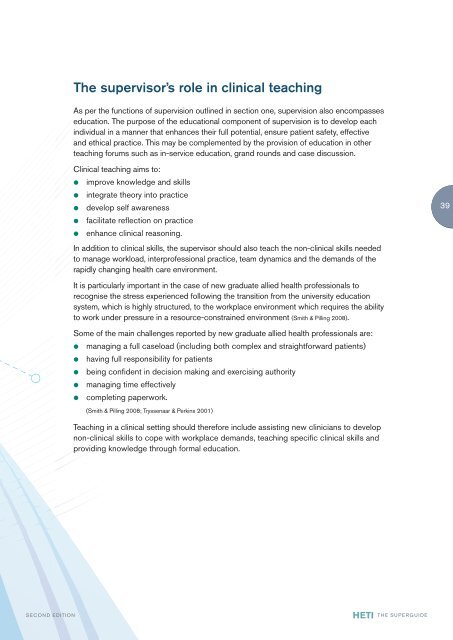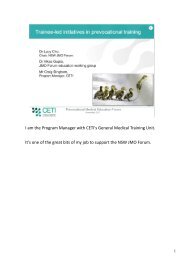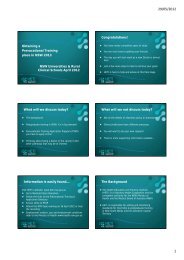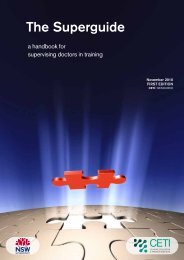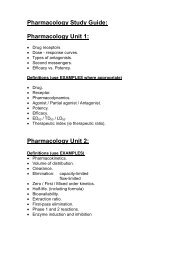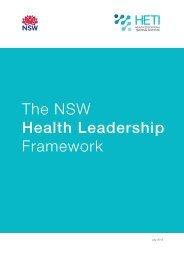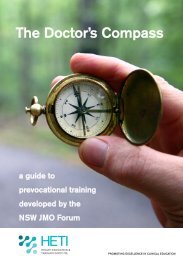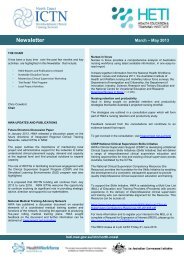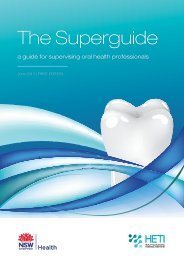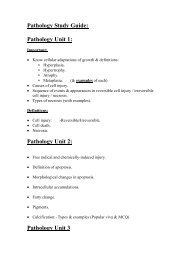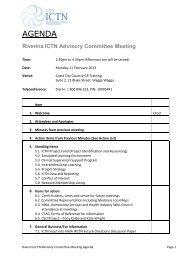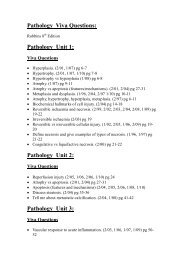a handbook for supervising allied health professionals - HETI - NSW ...
a handbook for supervising allied health professionals - HETI - NSW ...
a handbook for supervising allied health professionals - HETI - NSW ...
You also want an ePaper? Increase the reach of your titles
YUMPU automatically turns print PDFs into web optimized ePapers that Google loves.
As per the functions of supervision outlined in section one, supervision also encompasses<br />
education. The purpose of the educational component of supervision is to develop each<br />
individual in a manner that enhances their full potential, ensure patient safety, effective<br />
and ethical practice. This may be complemented by the provision of education in other<br />
teaching <strong>for</strong>ums such as in-service education, grand rounds and case discussion.<br />
The supervisor’s role in clinical teaching<br />
Clinical teaching aims to:<br />
• improve knowledge and skills<br />
• integrate theory into practice<br />
• develop self awareness<br />
• facilitate reflection on practice<br />
• enhance clinical reasoning.<br />
• having full responsibility <strong>for</strong> patients<br />
• being confident in decision making and exercising authority<br />
• managing time effectively<br />
• completing paperwork.<br />
(Smith & Pilling 2008; Tryssenaar & Perkins 2001)<br />
SECOND EDITION<br />
In addition to clinical skills, the supervisor should also teach the non-clinical skills needed<br />
to manage workload, interprofessional practice, team dynamics and the demands of the<br />
rapidly changing <strong>health</strong> care environment.<br />
It is particularly important in the case of new graduate <strong>allied</strong> <strong>health</strong> <strong>professionals</strong> to<br />
recognise the stress experienced following the transition from the university education<br />
system, which is highly structured, to the workplace environment which requires the ability<br />
to work under pressure in a resource-constrained environment (Smith & Pilling 2008).<br />
Some of the main challenges reported by new graduate <strong>allied</strong> <strong>health</strong> <strong>professionals</strong> are:<br />
• managing a full caseload (including both complex and straight<strong>for</strong>ward patients)<br />
Teaching in a clinical setting should there<strong>for</strong>e include assisting new clinicians to develop<br />
non-clinical skills to cope with workplace demands, teaching specific clinical skills and<br />
providing knowledge through <strong>for</strong>mal education.<br />
<strong>HETI</strong><br />
THE SUPERGUIDE<br />
39


